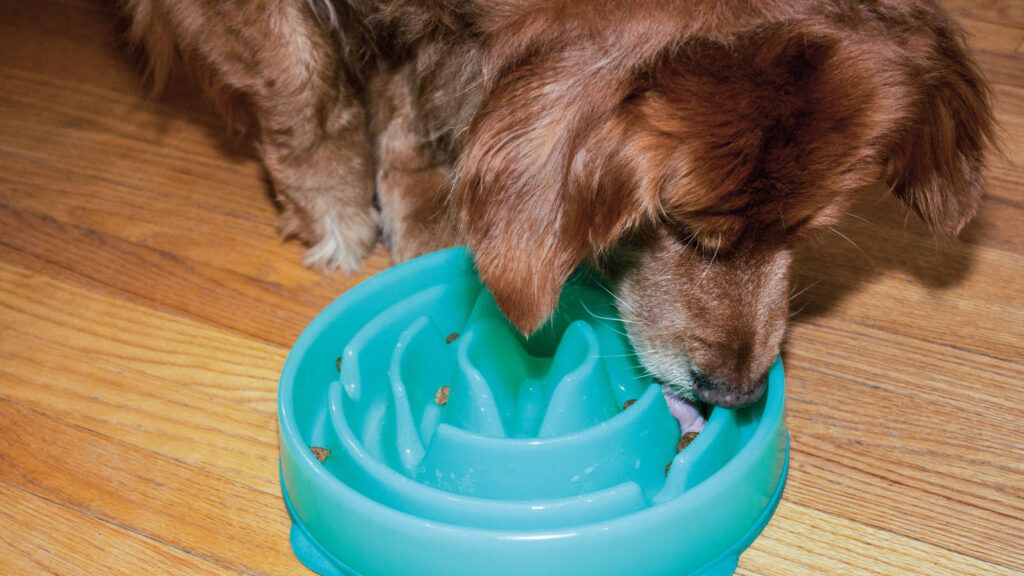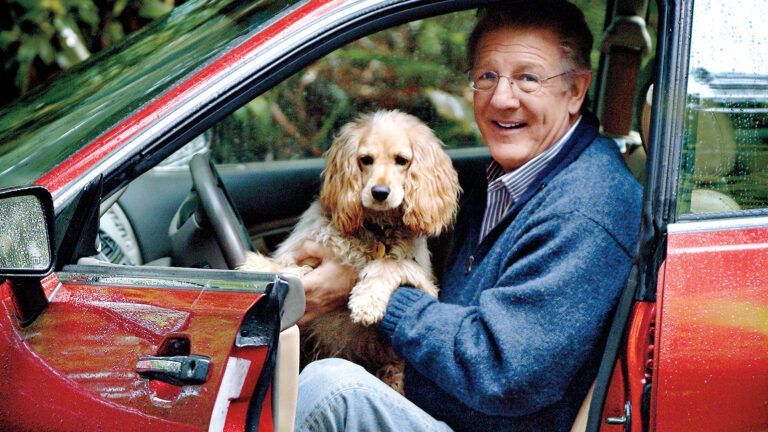Struggling with your dog’s or cat’s behavior? There may be a pet product that can help. We’ve done the research so you can find the right one for your needs. Remember: Some behavioral problems have a medical basis, so be sure to report any concern or change in behavior to your veterinarian first.
Your pet is anxious or afraid.
When you leave the house, does your dog bark or whine incessantly, or your cat yowl? One option for addressing separation anxiety is calming pheromones. Pet pheromones mimic a calming chemical naturally released by a dog or a cat. Pheromones can come in the form of a handy room spray or mist, a plug-in diffuser, or a collar or bandana.
Some pets are afraid of loud noises. A snug anxiety shirt or vest can help many cats and dogs settle down during thunderstorms, fireworks and other stressful situations. The pressure of the shirt works much the way that swaddling an infant does. You can also play targeted calming music, a tactic sometimes used in humane societies and rescue shelters. Look for clinically tested music that is shown to produce a calming effect in animals.
Your pet is bored.
If you’ve ever come home to find chewed furniture and shredded pillows, you know that’s how some pets entertain themselves when left alone. Why not provide more acceptable options to keep them occupied? We like interactive toys such as puzzles that release treats when solved. These are available for both dogs and cats. Puzzles range in their degree of difficulty and involve actions such as rolling balls, turning discs, uncovering compartments, moving sliders, flipping beakers and even solving a maze to get to treats.
Your dog pulls on the leash.
Are you walking your dog, or is your dog walking you? If your pup is a strong and consistent puller, a leash attached to a collar can be ineffective and lead to neck pain or injury. A back-clip harness actually makes it easier for your dog to pull.
Instead, try a front-clip harness, which has the leash attachment at the center of the chest. When your dog pulls, the harness puts pressure across his shoulders and turns him to the side, away from what he’s straining toward. Another option is a head collar, a device that fits around a dog’s head and has the leash attachment under his chin. In addition to training classes, either of these products can help you feel more secure and in control on walks.
Your pet gulps down dinner.
Pets who eat too fast can suffer an upset stomach, belching, and a life-threatening condition called bloat. One way to combat this problem: a slow feeder. This sort of food bowl contains ridges and mazes that make your pet eat at a healthier pace. Another type of slow feeder has protruding fingers that resemble a patch of grass. Yet another requires your pet to spin its lid to uncover hidden compartments of food. Puzzle balls release one or two pieces of food at a time when pushed or batted. Another popular option is a snuffle mat, which is made of soft, washable cotton. You hide bits of dry kibble in the mat to encourage your cat or dog to forage for its food. (For crafty folks, there are even instructions you can find online to make your own.)
Your pet won’t take medication.
If your pet hates her meds, try hiding the pills in special soft, hollow treats. Just push the pill or capsule into the pocket and pinch the ends closed. The odor and flavor of the treat will mask the smell and taste of the pill. The little pockets are easy and convenient to use.
Your dog hates to be groomed.
Do you have a dog who won’t stand still for grooming or a bath? Use a distraction device, such as a bumpy silicon pad that you smear with peanut butter and stick to the side of the bathtub. Your dog will stand still and happily lick the peanut butter while you scrub in the suds. The pad sticks to any shiny surface, so you can use it while you clean his ears, brush his fur or trim his nails.
Did you enjoy this story? Subscribe to All Creatures magazine.






